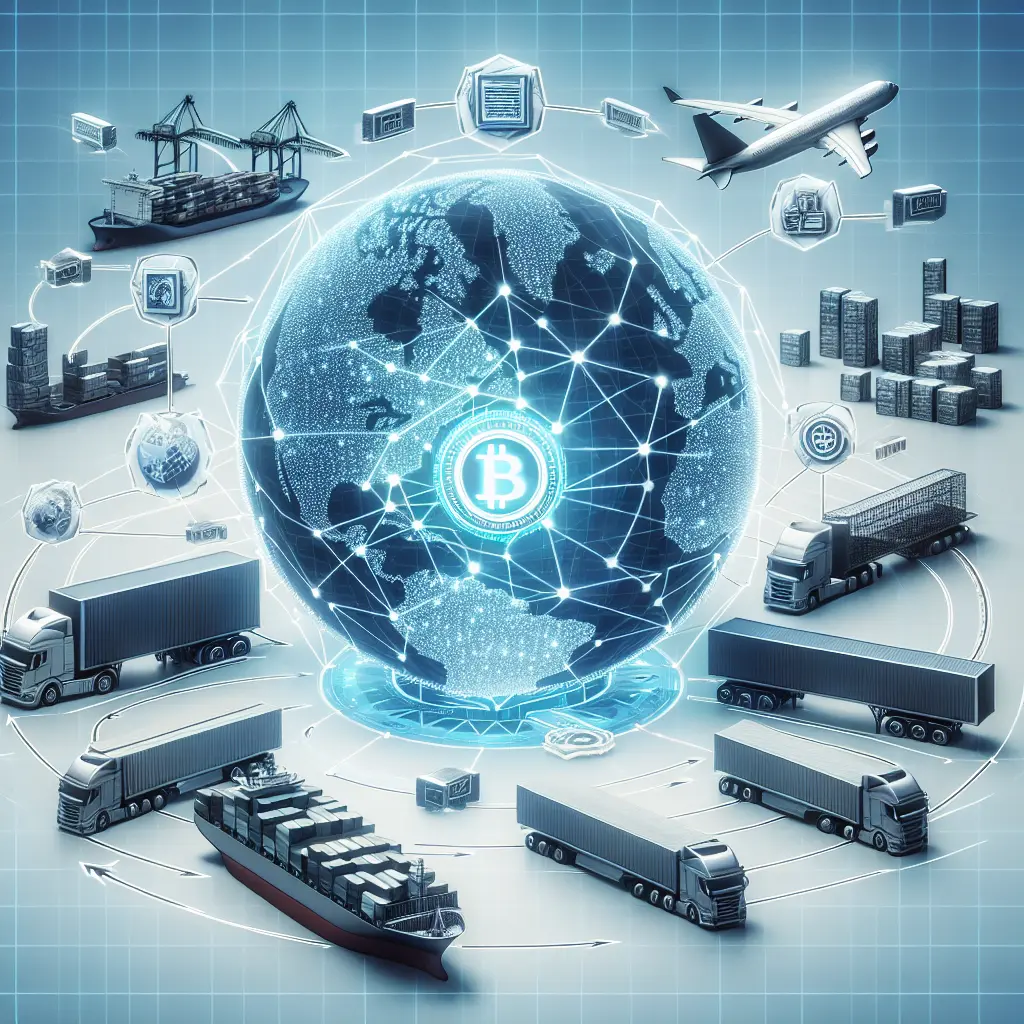
As the world becomes increasingly interconnected, the need for robust, efficient, and secure global supply chain management systems is more pressing than ever. In this context, blockchain technology emerges not just as a tool but as a revolutionary force capable of transforming the landscape of global supply chain management. With its ability to ensure transparency, enhance security, and improve traceability, blockchain is redefining how goods and information are exchanged globally.
Unpacking the Blockchain Impact on Supply Chain Efficiency
Blockchain technology offers unprecedented benefits in streamlining operations and enhancing the efficiency of supply chains. By allowing data to be shared across a secure network of stakeholders without requiring central control, blockchain fosters a decentralized supply chain model. This model significantly reduces delays, eliminates redundancies, and enhances the speed of transactions, thereby increasing overall supply chain efficiency.
For instance, in logistics and shipping, blockchain's application can lead to more straightforward processes. According to a recent announcement by Digihost, their 57% increase in quarterly year-over-year revenue for Q2 2024 can be partly attributed to integrating blockchain solutions for better asset tracking and inventory management within their operations (source needed).
The Role of Blockchain in Enhancing Supply Chain Transparency and Security
One of the standout features of blockchain technology is its ability to provide transparency across the supply chain. Every transaction recorded on a blockchain offers traceability in the supply chain, creating an immutable ledger of goods from production to delivery. This aspect not only boosts confidence among consumers but also enhances accountability among suppliers.
Furthermore, blockchain improves supply chain security. By encrypting data and decentralizing its storage, blockchain mitigates risks such as fraud, tampering, and cyber threats. Recent initiatives like Google’s legal actions against hackers and scammers underline the growing importance of cybersecurity (source needed). Blockchain's inherent security features can be a significant asset in this ongoing battle.
Smart Contracts: Automating and Securing International Trade
Smart contracts are self-executing contracts with the terms of the agreement directly written into code. In international trade, blockchain-enabled smart contracts can automatically execute transactions and agreements as soon as conditions are met, thereby reducing the need for intermediaries and minimizing the scope for disputes. This automation not only cuts down on time and costs but also significantly reduces human error and enhances compliance.
The potential for cost reduction through blockchain is substantial. Implementing blockchain solutions can streamline operations and reduce overheads related to audits, compliance, and administration. A recent market forecast predicts significant growth in online games of skill from 2024 to 2031 (source needed), indicating a broader acceptance and integration of blockchain technologies which could extend to various sectors including supply chain management.
Scaling Blockchain for Global Supply Chain Applications
Scalability remains one of the biggest challenges in the widespread adoption of blockchain technology. As businesses like OKX expand their use of blockchain by listing new assets like BOME on its Perpetual Futures Market (source needed), it's clear that scalable blockchain solutions are essential for handling increasing volumes of transactions without compromising on speed or security.
Innovations in blockchain scalability such as layer-two solutions or sharding are critical in ensuring that blockchain can handle the vast amounts of data processed in global supply chains. These advancements could pave the way for more extensive adoption of blockchain across multiple sectors.
Sustainable Supply Chains Through Blockchain
Sustainability is increasingly at the forefront of global supply chain discussions. Blockchain technology promotes sustainability by improving traceability, ensuring that all parts of the supply chain meet environmental standards. Companies like Sling Money, which recently raised $15 million for global payments transformation (source needed), reflect a growing trend towards adopting technologies that support environmental accountability.
Looking Ahead: The Future of Blockchain in Supply Chain Management
The future looks promising for blockchain in global supply chain management. With ongoing innovations and an increasing number of companies exploring blockchain solutions, its impact is set to broaden even further.
Digital Insurance Platform's Business Analysis Report (2023-2030) emphasizes that blockchain technology will continue to gain impetus (source needed). Moreover, initiatives like Unite's recent funding from Superlayer to build Web3 mobile gaming infrastructure (source needed) highlight the expansive potential of blockchain beyond traditional boundaries.
As we observe these exciting developments unfold, it's clear that blockchain technology holds the key to transforming global supply chain management into a more secure, transparent, and efficient process. The journey towards a fully integrated blockchain supply chain might be gradual but the direction is unequivocally forward-moving.
In conclusion, blockchain technology is not just an addition to the toolkit of global supply chain management; it is a transformative element that redefines how supply chains operate. From enhancing efficiency and transparency to improving security and sustainability, blockchain's impact is profound and far-reaching. As businesses continue to navigate the complexities of international trade and logistics, embracing blockchain could well be their best step forward.
Thank you for joining me on this exploration of how blockchain is revolutionizing global supply chains.
With optimistic regards,
Felicia Conrad